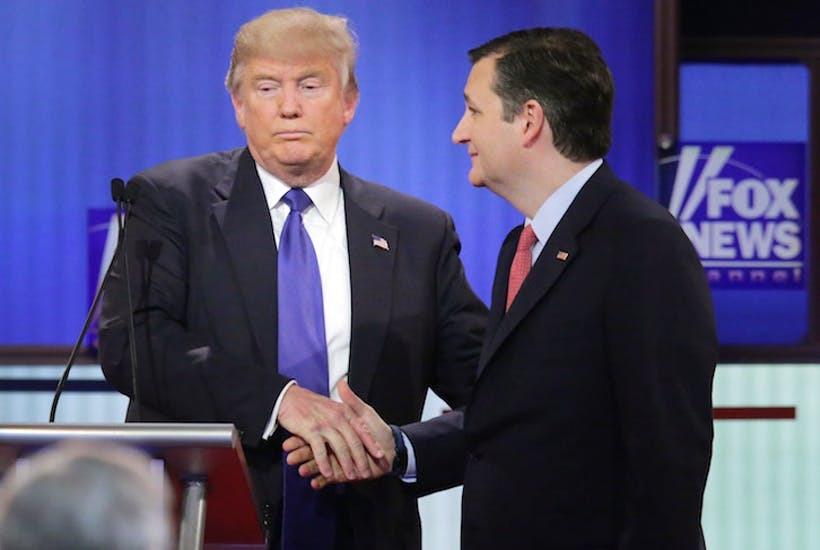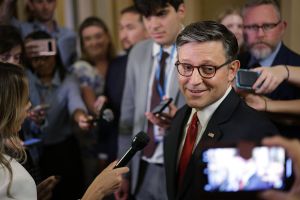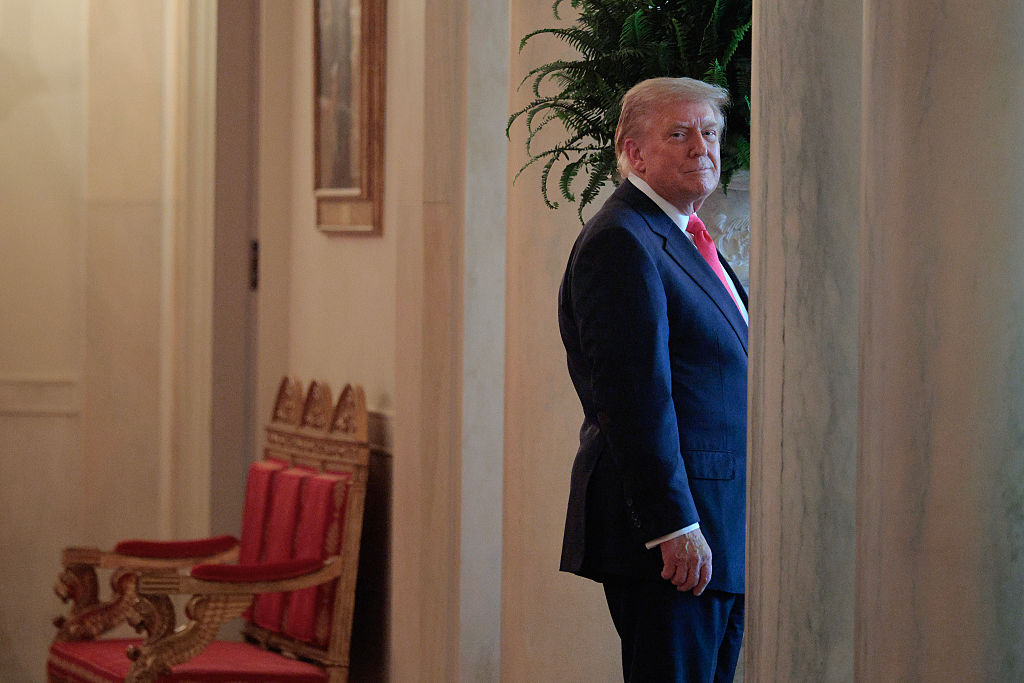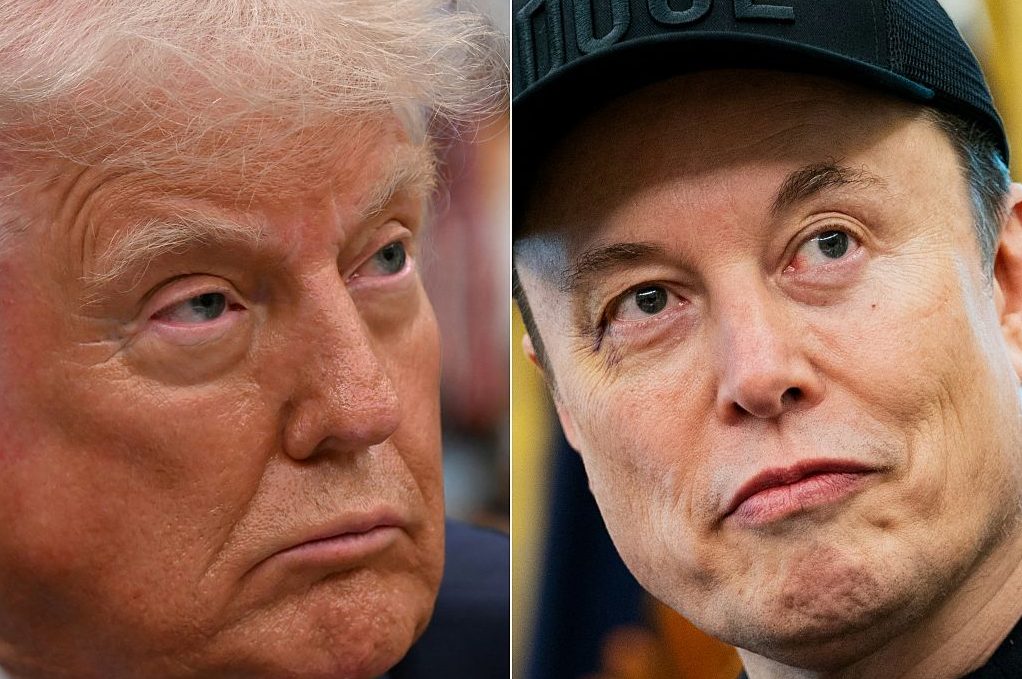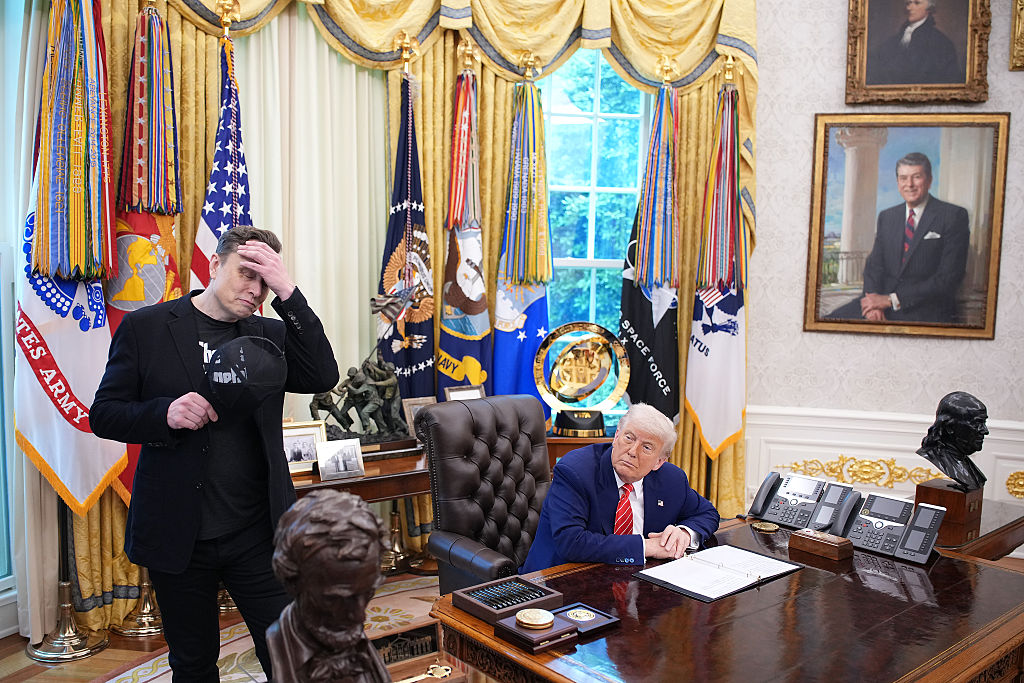In London last week I had the opportunity to talk about President Donald Trump with several politically mature friends. Most were sceptical, even slightly appalled, by him. It was my task to help them overcome this prejudice. I am delighted, dear reader, to attempt the same service for you.
I was not always a fan. For most of the 2016 campaign, I supported Ted Cruz, a choice that many thought only marginally less bad than Mr Trump. But politics is the art of the possible and it turned out that the only two possibilities were Donald Trump and Hillary Clinton. For me, that meant that the only possibility was Donald Trump.
Why? First of all, Clinton was the most corrupt serious candidate in history. Her elevation would have tainted the presidency beyond recall. Second, she would have continued Barack Obama’s policy of expanding ‘the administrative state’, the regulatory apparatus of unaccountable bureaucrats that increasingly runs the lives of citizens while promulgating a ‘progressive’, politically correct agenda on subjects from transgender bathrooms to immigration policy. Third, Clinton’s election would have solidified a nascent dynastic impulse, and the presidency should not be a prize that is shuttled among two or three families.
From July, when Trump was officially nominated by the Republicans, to November, when he was elected, I had already begun to revise my faute-de-mieux attitude. In speech after speech, he said things with which I heartily agreed. I liked what he said about judges. For many decades the American left has used the courts to effect social policies that the unenlightened voters have refused to countenance. Trump, taking advice from the Federalist Society, came up with a brilliant list of judicial candidates that any conservative had to applaud. These were men and women who would work to uphold the Constitution, not bend it to a politically correct agenda.
Trump had many other policies I could applaud. I liked what he said about securing US borders and dealing with illegal immigrants. (I liked, too, that he did not call them ‘undocumented workers’). I nodded in approval when he talked about exploiting America’s energy resources, strengthening our military and promising to stand up to rogue states like North Korea and Iran. I was pleased that he wanted to simplify the US tax code, making it more competitive for business and more equitable for individuals. I was happy that he promised to do something about the unconstitutional and shockingly inefficient monstrosity of Obamacare.
I liked his attack on political correctness and his ‘America First’ attitude. As he said at Davos, this does not mean ‘America Alone’. Remember the idea of enlightened self-interest? It means mutually beneficial partnerships in which every country works towards a common good by looking after its own interests first.
Then came Trump’s inauguration. Thousands of women, upset by his vulgarity, paraded around the Washington Mall wearing pink hats in the shape of female genitalia. (To show how the revolution eats its own, those hats are now politically unacceptable because a) not all genitalia are pink and b) they exclude people who identify as women but lack vaginas. I am not making this up.)
The inauguration also sparked scores of protests in Berkeley CA, New York and other such privileged redoubts. Black-masked ‘antifa’ warriors, campaigning against ‘fascism’ and ‘intolerance’, burned cars and buildings and assaulted the President’s supporters. Welcome to the ‘Resistance’. What were they resisting? A free, open, and democratic election in which their candidate lost.
Then Trump set about fulfilling his campaign promises. He nominated, and won approval for, Neil Gorsuch as an Associate Justice of the Supreme Court. He has also had 20-odd federal appellate court judges approved. He said ‘Yes!’ to the Keystone and Dakota pipelines, gave a green light to fracking, and opened up to drilling vast territories that green totalitarians had taken. He increased the US military budget to some $700 billion and instructed immigration police to enforce the law. Even before a single section of his vaunted wall was built, illegal immigration fell by more than 50 per cent.
Trump had also promised to move the US embassy in Israel to Jerusalem. Several previous presidents had made that promise. Two decades ago, the Senate had passed legislation requiring it. Donald Trump did it.
Then there is the economy. In the early hours of 9 November, Paul Krugman (Nobel laureate in economics, professional scold for the New York Times) wailed that the stock market would ‘probably never’ recover from Trump’s victory. The Dow Jones index then stood at just over 18,000. As I write it is over 26,000. That represents more than $7 trillion added to the value of the market.
In December, a tax reform bill sharply cut the corporate tax rate and, for most Americans, the individual tax rate. Scores of businesses gave employee bonuses, raised wages, and hired new workers. Unemployment is down to 4.1 per cent; black unemployment is at the lowest rate ever recorded.
It is, as Ronald Reagan said at a kindred moment of optimism, morning in America. In speeches, Trump has affirmed America’s commitment to battle freedom’s enemies and pursue economic growth. In his State of the Union address on Tuesday, he frequently struck a conciliatory note. He extended his hand to Democrats as well as Republicans to solve the nation’s problems —from immigration reform to rebuilding our crumbling infrastructure. The word ‘love’, especially love of country, occurred often. But so did words denoting resolve and determination. The ‘beauty of America’s soul’ he counterpoised with the ‘steel in America’s spine’. Trump’s campaign slogan was ‘Make America Great Again’. On Tuesday he acknowledged that ‘it is the people who are making America great again’. Not the bureaucrats.
You may not like President Trump’s taste in ties or steak, his tweets or his curious rhetoric. But fair-minded observers should find a lot to like in the results of his pragmatic, non-ideological approach to the nation’s — and the world’s — security and prosperity.



